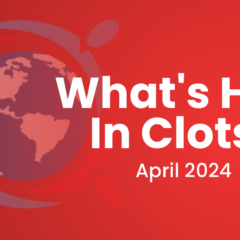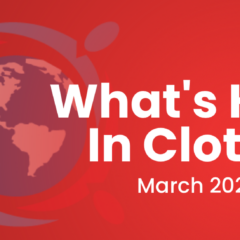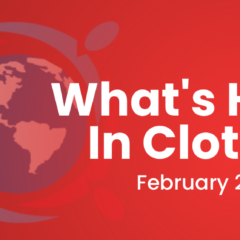Last updated on
Clot Chronicles: Revisiting the Caravaggio Trial – Key Findings for Patients with Cancer and VTE
Hello, my name is Dr. Jean Connors. I’m a hematologist at Brigham and Women’s Hospital and Dana-Farber Cancer Institute. Today on this episode of the Clot Chronicles, I would like to discuss the Caravaggio trial. The Caravaggio trial was a study of apixaban, a direct oral factor Xa inhibitor, versus dalteparin, a low-molecular-weight heparin (LMWH) in patients who’ve had cancer and new venous thromboembolism (VTE). The trial was conducted in multiple countries around the world and enrolled over 1,160 patients.
Patients were followed for 6 months and evaluated for recurrent VTE events or major bleeding and clinically relevant nonmajor bleeding as separate endpoints. In this trial, apixaban was found to be noninferior for preventing recurrent VTE compared to dalteparin. Now, dalteparin had been the gold standard for treating VTE in patients with cancer since the publication of the CLOT trial in 2003. At that time, the only other anticoagulant available for use in the outpatient setting was warfarin or the injectable LMWH. And LMWH was found to be better because it’s very difficult to manage warfarin in the setting of chemotherapy and with the complications that cancer patients have.
The Caravaggio trial is important not only because apixaban was noninferior or was just as good as dalteparin at preventing recurrent blood clots, but it had a significant finding of no difference in major bleeding compared to dalteparin. Two other recent trials of direct oral anticoagulants, the HOKUSAI-VTE Cancer trial and the SELECT-D trial, looked at edoxaban and rivaroxaban in patients with cancer and found that they, too, were noninferior to dalteparin for preventing recurrent VTE – but they were associated with a higher rate of major bleeding than apixaban. So, apixaban appears to be safe for all types of patients with cancer in that the rates of major bleeding were not different compared to LMWH.
In the SELECT-D trial and the HOKUSAI-VTE trial, it seemed that patients with GI tract malignancies were the patients who had bleeding events. Those patients in the apixaban trial, the Caravaggio trial, did not have an increased rate of bleeding, although this was not a prespecified analysis. So, unless your patient with cancer and VTE has concerns for drug-drug interactions or concerns for GI absorption if they’ve had resected bowel or resected parts of their stomach, we can pretty much safely use apixaban in a wide array of patients with cancer.
Thank you for your attention to the Clot Chronicles today.



